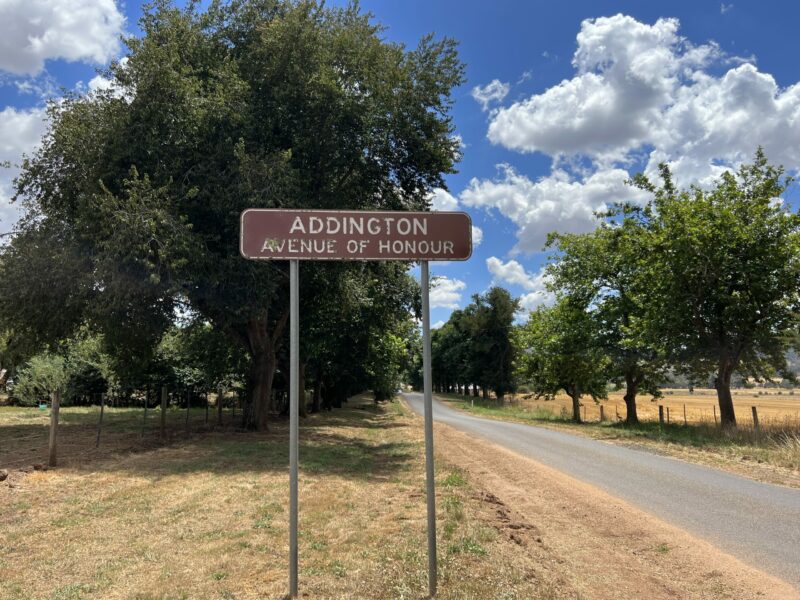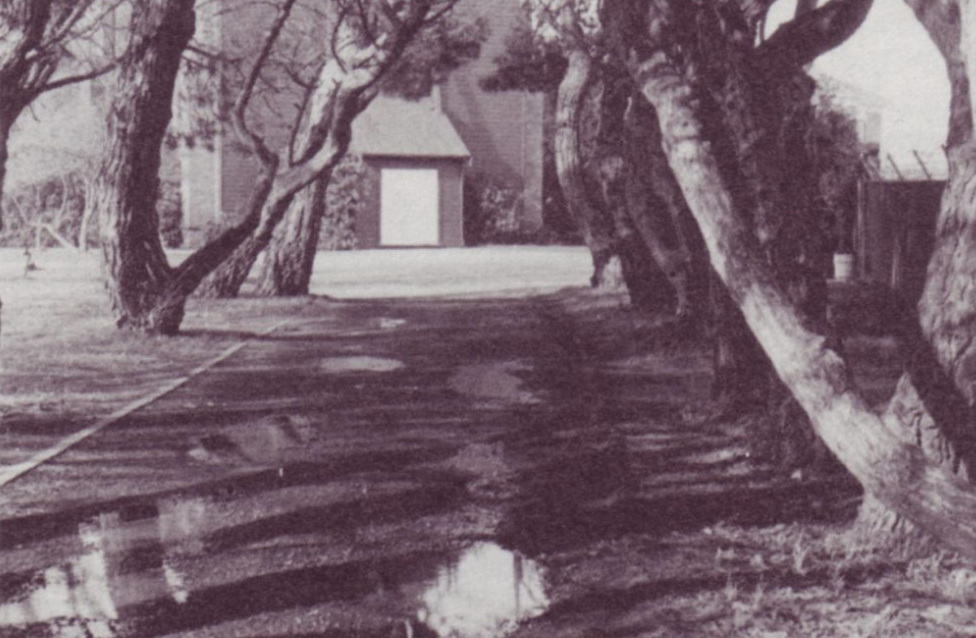The Addington Avenue of Honour was planted on Arbor Day, 7th June, 1917, to commemorate enlistees from the local Addington community, who served during WW1.
| ADDINGTON AVENUE OF HONOR SPEECH BY THE PREMIER. INCIDENTS OF THE WAR. ADDINGTON, Monday. |
| Three weeks ago the Addington School Committee invited the co-operation of the residents in connection with the Arbor Day celebration arranged by the head teacher, Mr Burr. As sufficient trees were already growing within the school-ground, it was agreed to adopt Cr Chas Henderson’s suggestion that the trees should he planted on the roadside. At a later meeting Cr Henderson attended and intimated, that his colleagues, Crs D. Medwell and J. P. Spiers, favoured the proposal, and could give an assurance that the council would bear the cost of the trees and also the material necessary to protect them. ln view of such encouragement the residents became most enthusiastic, and resolved to observe Arbor Day by planting an avenue of trees in honor of the brave lads who have gone forth from the district to take their part in this great war. The majority of the lads were once scholars of the Addington school. The Premier (Sir Alexander Peacock) and Lady Peacock, accompanied by Mrs Fyson and Miss Holden, arrived from Creswick by motor. The head teacher’s little daughter Madge Burr, on behalf of the school girls, presented Lady Peacock with a bouquet of violets as a token of their regard. Lady Peacock in kindly spoken words expressed her deep appreciation of their gift and the sentiment it conveyed. The first tree was planted by Lady Peacock. Sir Alexander shovelling in the soil, and on the opposite side of the road the president of the Ballarat Shire, at the request of the children, planted a tree in memory of the late Mr H. Walker, a member of the School Committee who had been identified with every function over since the inception of School Committee. At the conclusion of the planting an adjournment was made to the schoolroom where tables were laid with an excellent repast. Mr Walter Harrison, president of the School Committee, expressed pleasure at seeing such a record attendance to honor such a memorable occasion, and assured all present that the Committee was extremely grateful for the assistance they had received. Sir Alexander Peacock having expressed pleasure at being associated with the function, said he remembered quite well 21 years ago when he first presented himself as on aspirant for Parliamentary honours to the people of Addington. The names of many of his loyal supporters, not only then, but ever since, were that day brought vividly before his mind when reading the names of the soldiers that formed their avenue of honor. During his 28 years of public life he had been closely associated with many of those brave soldiers’ parents, and he congratulated the people of Addington on the efficiency and completeness of every detail of the arrangements which made it possible to provide a lasting proof of the district’s endeavour to honor and cherish the memory of those who had faced the greatest dangers and, unfortunately, in some cases, had made the supreme sacrifice, in order to preserve our liberty and freedom. The absence of those men would be felt in the years to come. It was the pluck of their grandparents and parents from the Old Country that had caused Australia to progress, and the women had played an important part, and wore continuing to do so. The evidence before them of the important part the girls and women had taken to ensure the success of that day’s function brought to his memory a scene that he witnessed recently, when 300 girls sailed away for Salonika as nurses to tend the sick and wounded soldiers. He could tell them that the Federal and State Parliaments were experiencing strenuous times in financing through this war, and he was pleased that developments in America had very much brightened the outlook. He could tell them that the increase in freights and fares were infinitesimal compared to the great problems that would have to be faced in the future. America would soon be able to build three ships a day, and also a large fleet of airships, so that it would be possible for Australia to transport produce to take the place of much that was now being sent from America to meet England’s requirements. He could tell them that the enemy was still far from defeated, and the raiders and submarines were operating closer to Australia than many imagined. We should be thankful to Providence to be spared the devastation of our country by the enemy as was happening in Belgium, Servia, and France. The people of Australia, nevertheless, had their sorrows, and particularly the mothers and wives. A pathetic incident had recently occurred in his native town, where a private (with a wife and two children, who still lived on Church HilI) had answered to the call and enlisted. Whilst fighting in France he was billeted in a little cottage occupied by a French Widow and her young children, whose breadwinner had fallen in battle. This private from Creswick used to nurse the widow’s children in memory of the dear ones he had left behind. The day came when he was killed, and the widow had written a letter in French to his sorrowing wife in Creswick, in which she stated that every day her children go to the little village cemetery close by and place some flowers on the grave of the brave soldier who came 12,000 miles to help to protect them from the enemy. The letter said – “He used to many times stay with the children whilst I went out to earn a few pence as a charwoman, and in sympathy with you in your great sorrow, for I know you have lost a good husband. I join hands across the wide world.” There was also a very sad incident in connection with the gathering that day occasioned by the death of Mr Harry Walker, whose residence amongst them had been of such estimable worth. They all knew how enthusiastic he was toward the proposal that eventuated that day, and they deeply regretted the early close of a life so useful to the district. He hoped the children and people would continue their interest in the welfare of the trees they had planted that day, which would grow up, signifying the admiration and love for those in whose memory they had been planted. Cr John Baird, president of the Ballarat Shire, said it was very pleasing to know that the men who previously had been engaged in peaceful occupations had, after a very short time of training, taken their place amongst the best soldiers the world had produced. On the battlefield they had acquitted themselves in a way that earned immortal fame, and had made Australia’s name ring throughout the world. He approved of the living memorial in the form of an Avenue of Honour of their representatives from Addington, and he hoped the Government would not forget to compensate them on their return. The Rev. Mr Halford referred to the sentiment he was assured would be created in the district owing to the planting of their avenue. It would undoubtably have at great influence on the character and life of the children in years to come. Crs C. Henderson, D. Edmondston, D. Medwell, and J.P. Spiers also spoke, and expressed a wish that Sir Alex and Lady Peacock’s party would be able to a attend at similar gatherings for the same purpose throughout the shire within the next few weeks. The Chairman (Mr W. Harrison) proposed, and Mr W. Tynan (the secretary) supported a vote of thanks to Sir Alex and Lady Peacock, and party for their attendance, which was acknowledged by Lady Peacock lady and Cr John Baird. The singing of the National Anthem concluded the proceedings. |
| Appended are the names of the soldiers honoured in the avenue: Private Neil Currie (Lady Peacock) William Robinson (Mr A. Robinson). Peter Robinson (Mrs J. Shearer). Thomas Kerr (Mrs A. Kerr) John Kerr (Mr A. Kerr). William Leach (Mrs A. Harrison). Charles Letchbridge (Miss C. Baber). George Lowery (Walter Tynan). Thomas Lowery (Mrs W. Tynan) John Hanchett (Mr Barr). Lt George Beaumont (Miss Pearl Goldsmith) John Shelly (Mr A. Beseler) Ernest Beseler (Miss Grace Beseler). George Beseler r (Mis Lena Beseler). Henry Hutchinson (Mr A. Harrison). William Smith (Mrs W. Harrison). Angus Blair (Miss Jessie Blair). Henry Kerr (Miss Doris Kerr). Charles Edmondston (Mrs D. Edmondston). Laurence Molloy (Mrs C. Edmondston). Frank Bull (Doreen Tynan). Percy Bull (Nellie Bull). William Blake (Mira Tynan). Simeon Full (Miss Tessie O’Farrell). William Ingram (Miss Bella Fraser). James Parker (Miss May Lynch). Samuel Parker (Miss Jessie Baber). William Nicholl (Mr D. Medwell). Francis Scanlon (Mr W. Baber). Leslie Birch (Mrs Paterson). Joseph Birch (Mr Paterson). Gillan McNaughton (Miss Laura Dean). John Chapman (Elsie Shearer). Alexander Chapman (Mr John Medwell). Percy Chapman (Mr J. P. Spiers). Claude McCook (Mrs Beseler, sen.). Eric McCook (Mrs Beseler, sen.). Robert McCook (Mr John Beseler, sen.). Donald Blair (Sir A. J. Peacock). Mr Henry Walker (Cr John Baird). |
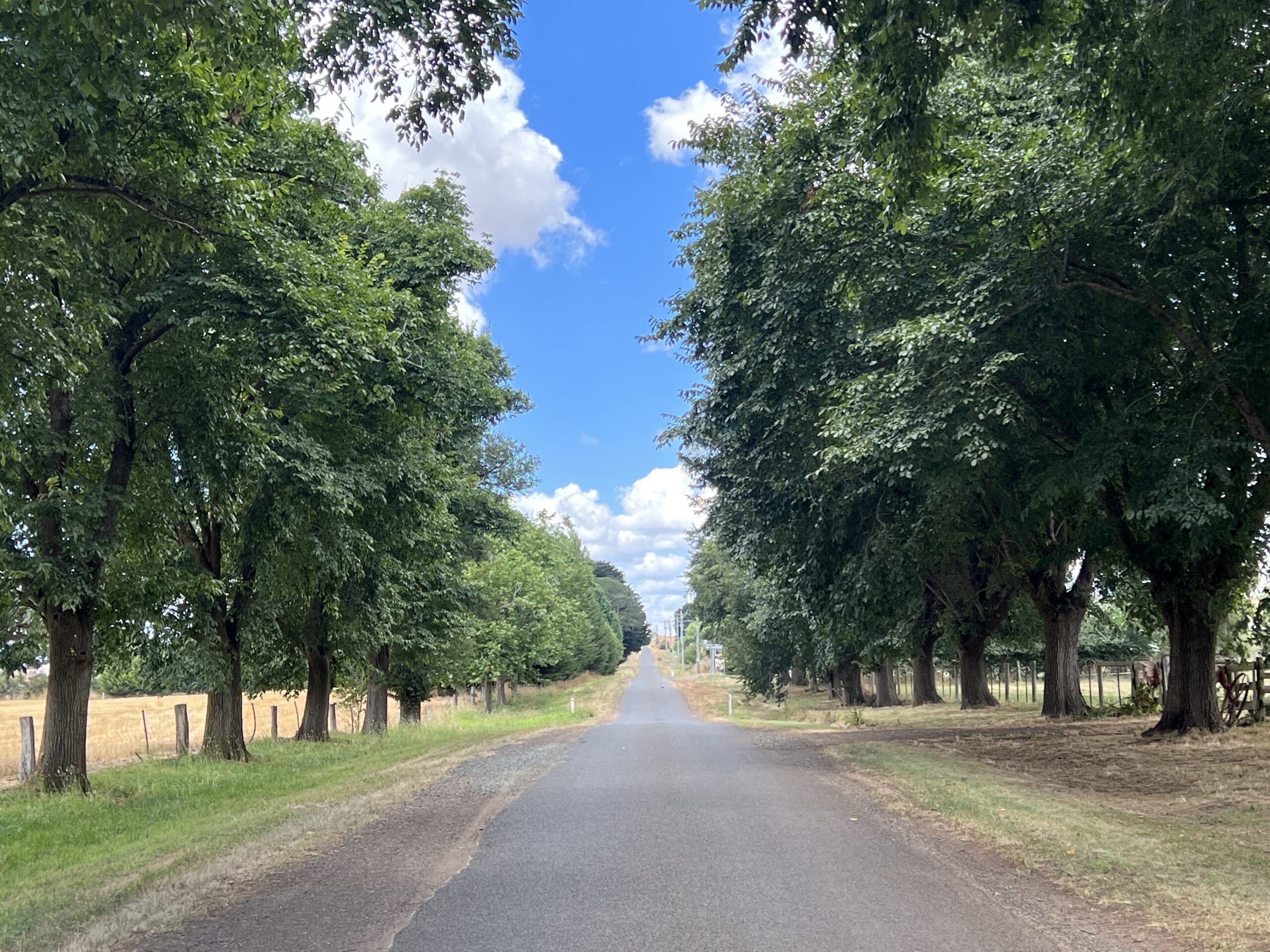 | 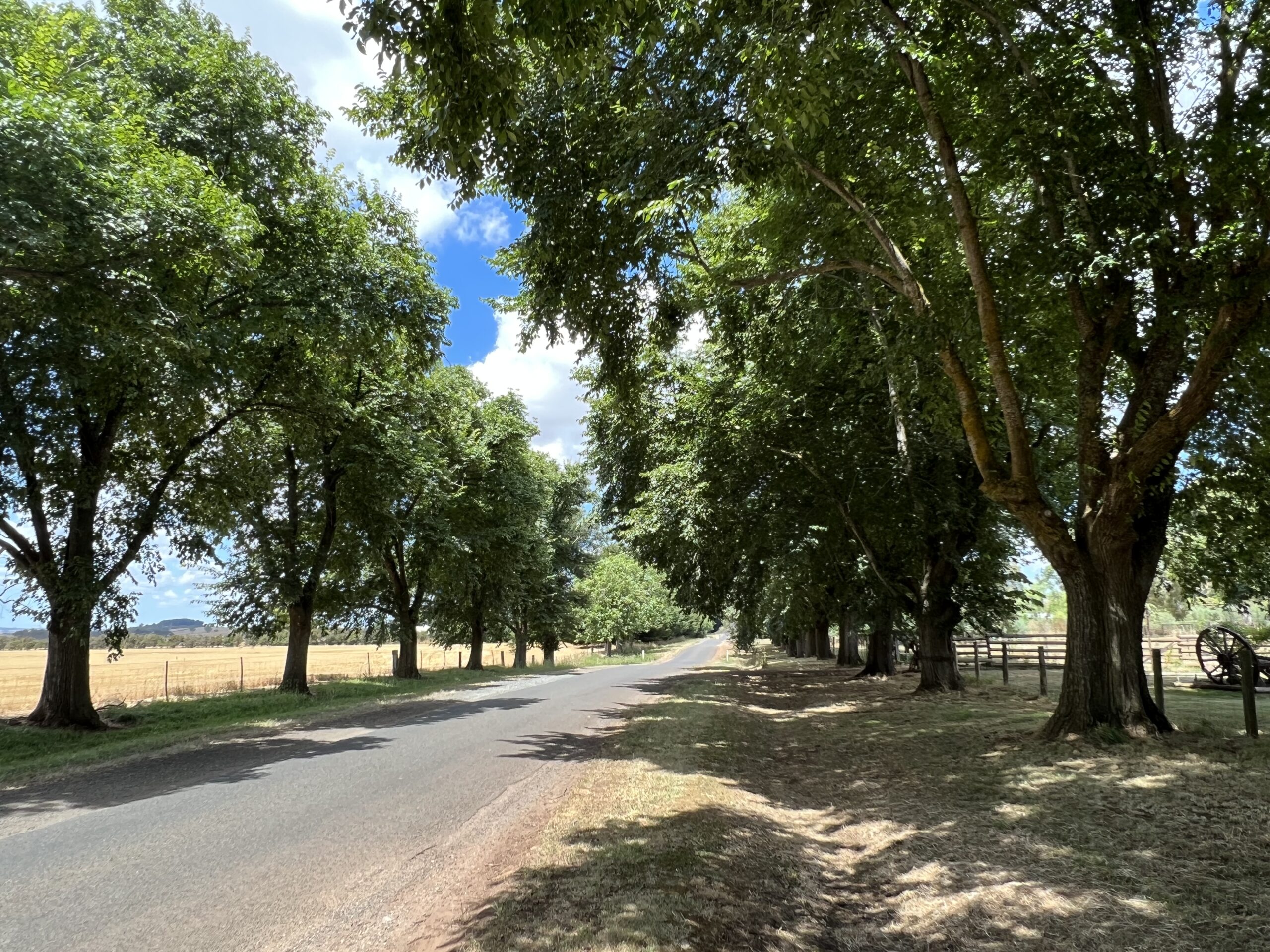 |
In January 2023, each side of Edmondston Road is principally lined with Dutch Elms (Ulmus x hollandica), numbering 34.
5 London Plane trees (Platanus x acerifolia) are interspersed amongst the 19 Elms on the east side and a single London Plane adds to the 15 Elms on the west side of the road.
Re-dedicated on 25th April 1991, a new plaque was unveiled to add to the commemorative nature of the Avenue .
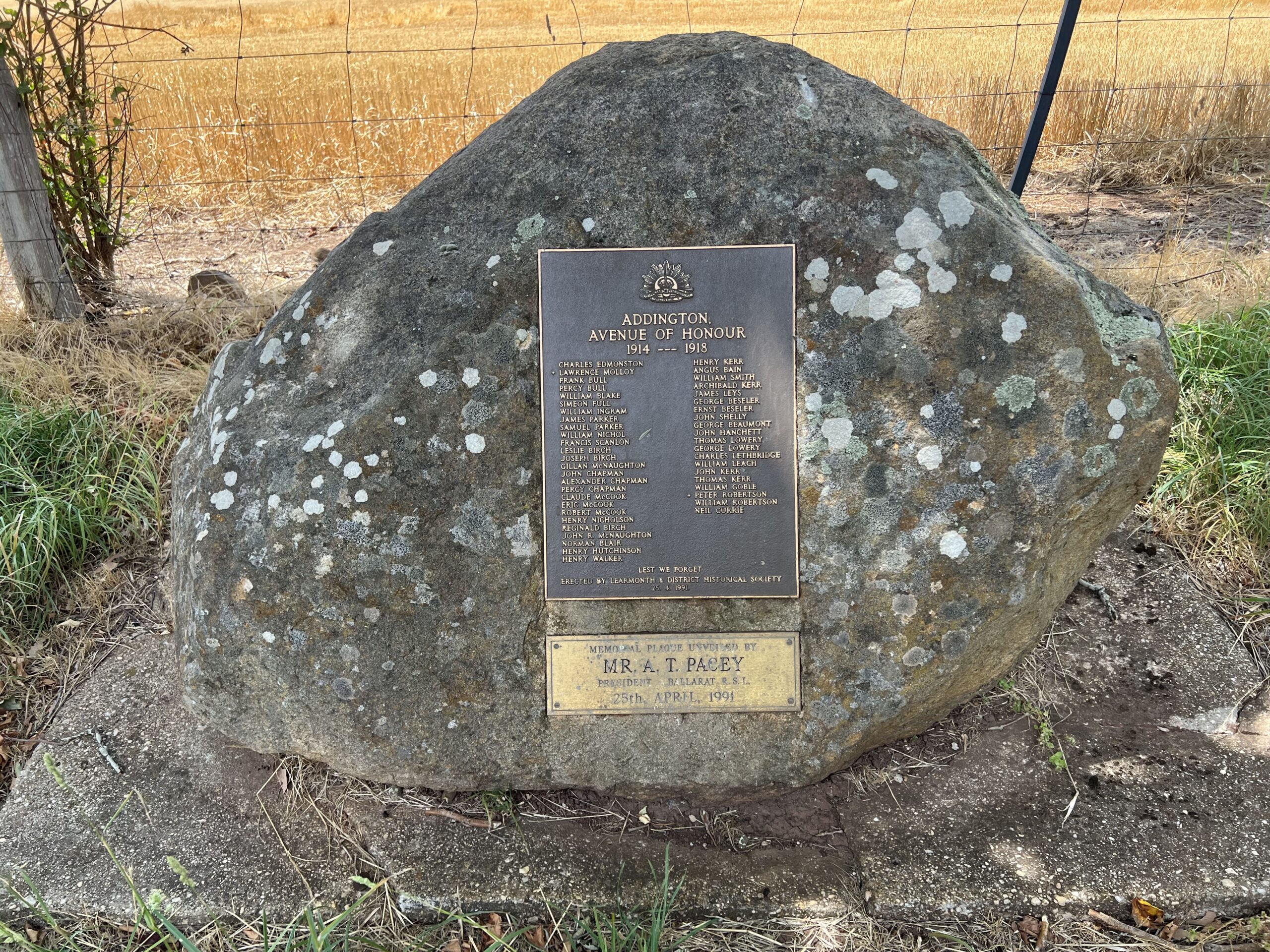 | 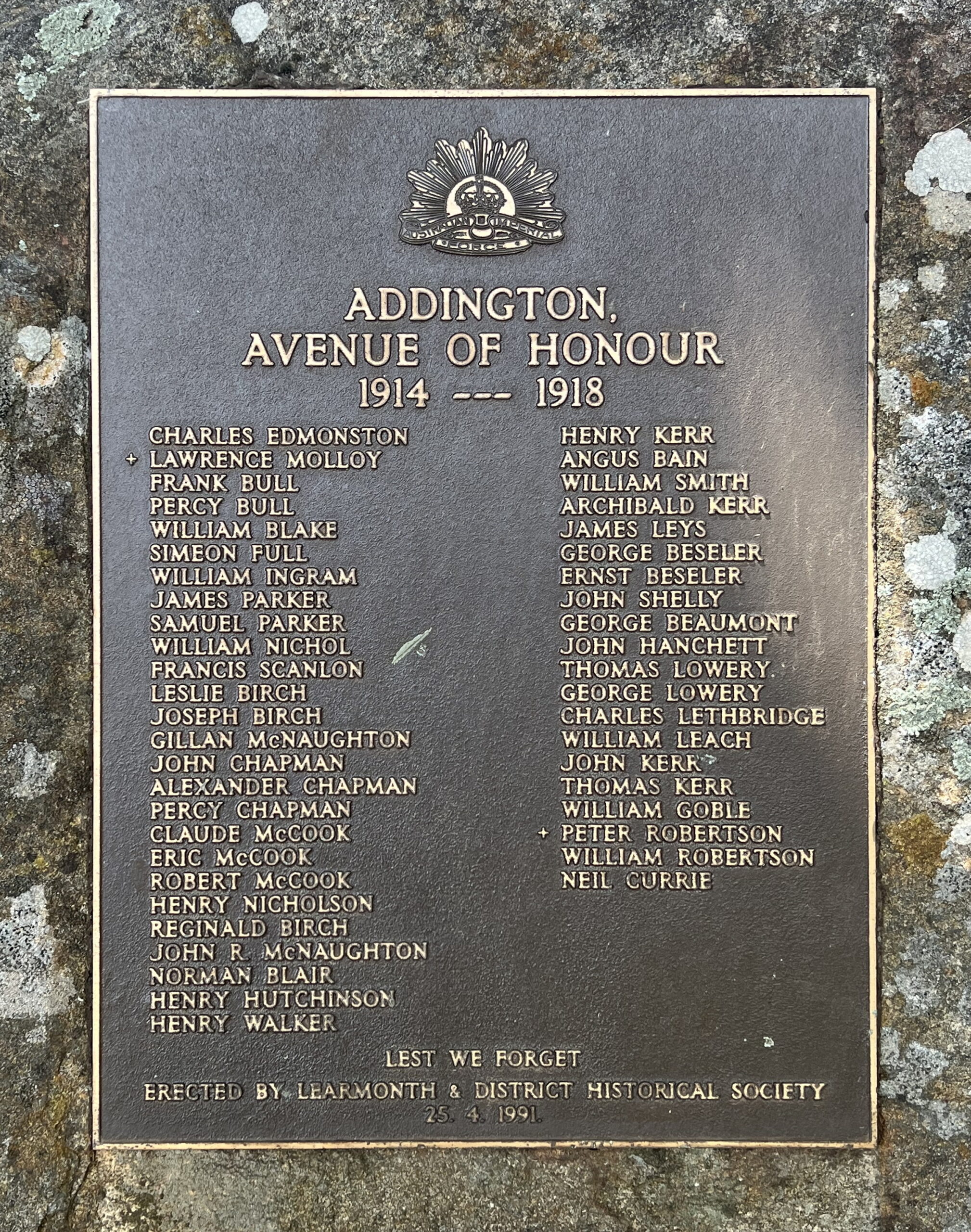 |

